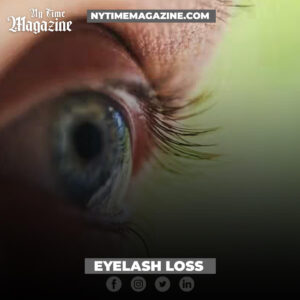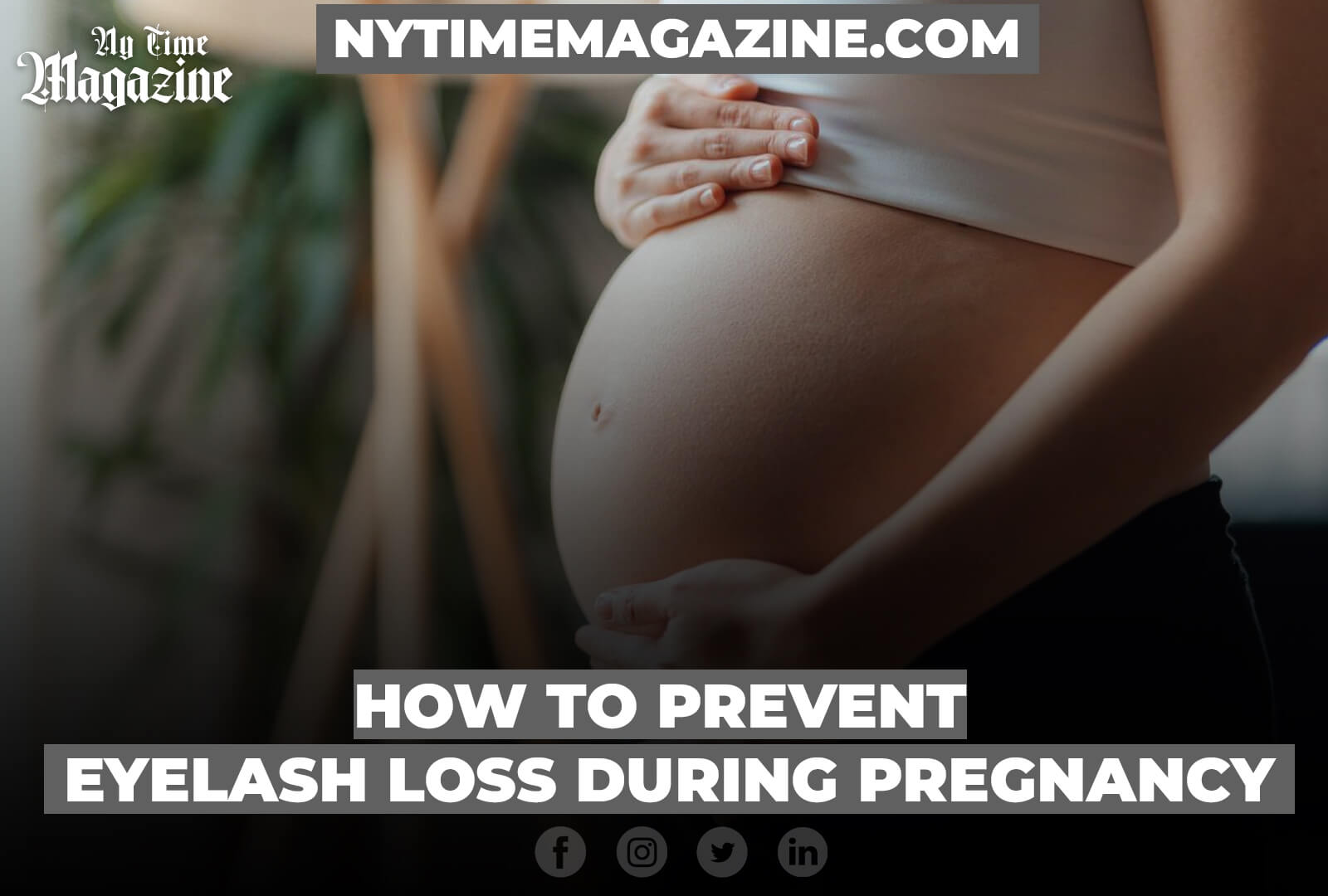We’re all familiar with the typical bodily changes that come along with pregnancy – morning sickness, cravings, cramps, mood swings, and weight gain, to name a few. However, did you know that some pregnant women also experience losing eyelashes during pregnancy? While not very common during pregnancy, it’s usually something that occurs postpartum. Nevertheless, if you’re facing this issue, there’s no need to worry excessively.
That said, you’re likely interested in learning how to restore your fluttery lashes safely. Fortunately, there are several methods to achieve just that. But first, let’s delve into the potential causes behind this eyelash loss during pregnancy.
Possible Causes of Eyelash Loss During Pregnancy
- Thyroid Function: One possible reason for eyelash loss during pregnancy is changes in thyroid function. Both hypothyroidism (underactive thyroid) and hyperthyroidism (overactive thyroid) can lead to eyelashes falling out during pregnancy. During pregnancy, hormonal changes, particularly elevated estrogen and human chorionic gonadotropin (hCG) levels, can contribute to hyperthyroidism, which, in turn, makes hair thinner, drier, and more brittle, leading to shorter eyelashes during pregnancy.
- Nutrient Deficiency: Another potential cause is a lack of essential nutrients and minerals, including B12, iron, vitamin D, biotin, protein, and essential fatty acids. During pregnancy, your body requires increased amounts of these nutrients. Failing to obtain enough from your diet can result in various side effects, including eyelash loss during pregnancy.
- Expired Makeup Products: Sometimes, the simplest explanation is the correct one. Using expired makeup products on your eyelashes can cause them to fall out. Remember that makeup does not last forever and can become a breeding ground for bacteria. Additionally, excessive use of false eyelashes and extensions may lead to eyelashes falling out during pregnancy. Always remember to remove your makeup before bedtime, even when you’re feeling extra tired during pregnancy.

PREVENT EYELASH LOSS DURING PREGNANCY
While these are some common reasons, it’s advisable to consult your OB-GYN to determine the precise cause of your losing eyelashes during pregnancy and receive appropriate guidance. Simultaneously, there are safe remedies you can try for yourself, such as:
5 Safe Methods to Prevent Eyelash Loss During Pregnancy
- Proper Diet: Maintaining a healthy diet is crucial during pregnancy, not only for your well-being but also for preventing side effects like eyelash loss during pregnancy. Consider incorporating foods rich in nutrients like protein (e.g., eggs, milk, almonds, oats), biotin (found in whole grains, lean meat, and legumes), essential fatty acids (present in broccoli, spinach, and walnuts), beta-carotene (abundant in carrots, sweet potatoes, and winter squash), vitamin A (found in bell peppers, tropical fruits, and lettuce), vitamin C (in oranges, red peppers, and Brussels sprouts), and iron (available in beans, raisins, and apricots) into your diet. Always consult with your OB-GYN before making significant dietary changes to ensure it’s safe for both you and your baby.
- Natural Oils: Applying natural oils to your eyelashes before bedtime can be an effective and safe remedy for preventing eyelash loss during pregnancy. Oils like castor oil (rich in omega-6 fatty acids, vitamin E, and protein), coconut oil (abundant in fatty acids and other beneficial compounds), and emu oil (packed with omega-3 fatty acids) promote healthy hair growth and scalp health.
- Eyelash Growth Serums: Some eyelash growth serums can help prevent eyelash loss during pregnancy. However, it’s crucial to carefully check the ingredients. For example, Latisse, a popular lash serum, is not recommended during pregnancy due to its FDA categorization as a potential risk (category C). While there is no human testing data, animal studies have shown adverse effects. Instead, opt for eyelash conditioners with peptides and botanical extracts, which are considered safe.
- Biotin Supplements: Biotin is an essential nutrient for healthy hair growth and can be found in various dietary sources. There are also biotin supplements available over the counter, generally considered safe for pregnant women. However, consult your OB-GYN first, as your prenatal vitamins may already contain sufficient levels of biotin. The recommended daily intake of biotin is 30 micrograms for pregnant women and 35 micrograms for those who are breastfeeding.
- Proper Makeup Habits: Makeup products have expiration dates, regardless of their frequency of use. Pay attention to these dates, especially for products used around the eyes, like mascara, to avoid adverse effects like eyelash loss during pregnancy. Additionally, always remember to remove your makeup before going to bed to give your lashes a chance to breathe.
In the grand scheme of things, eyelash loss during pregnancy is a minor bump in your pregnancy journey. Rest assured that even if you choose not to intervene, your eyelashes will likely return to normal a few months after giving birth. Here’s to a happy pregnancy and beautiful eyelashes!
Frequently Asked Questions
1. Can pregnancy really cause eyelash loss, and when does it typically occur?
- Yes, pregnancy can lead to eyelash loss, although it’s more common after giving birth. This condition is often temporary and resolves naturally within a few months postpartum.
2. How do hormonal changes during pregnancy contribute to eyelash loss?
- Hormonal fluctuations, such as increased estrogen and human chorionic gonadotropin (hCG), can affect thyroid function, leading to thinner and more brittle hair, including eyelashes.
3. Are there specific nutrients I should focus on in my diet to prevent eyelash loss during pregnancy?
- Yes, incorporating nutrients like biotin, protein, essential fatty acids, and vitamins A and C into your diet can support overall hair health, potentially preventing eyelash loss.
4. Can using expired makeup products really lead to eyelash loss, and how can I ensure my makeup is safe during pregnancy?
- Expired makeup can harbor bacteria that may contribute to eyelash loss. To ensure safety, check expiration dates and regularly replace your eye makeup products.
5. Are eyelash growth serums safe to use during pregnancy, and if not, what alternatives can I consider?
- While some eyelash growth serums may not be safe during pregnancy, you can opt for eyelash conditioners with peptides and botanical extracts, which are generally considered safer alternatives.
6. Is it advisable to take biotin supplements during pregnancy, and how can I determine if I need them?
- Consult your OB-GYN before taking biotin supplements, as your prenatal vitamins may already contain sufficient levels. Your healthcare provider can assess your specific needs.
7. How can I properly incorporate natural oils into my eyelash care routine to prevent eyelash loss during pregnancy?
- Apply natural oils like castor oil, coconut oil, or emu oil to your eyelashes before bedtime, allowing them to work overnight to promote healthy lash growth.
8. What role do thyroid disorders play in eyelash loss during pregnancy, and can they be managed?
- Thyroid disorders, such as hyperthyroidism, can contribute to eyelash loss. Consult your healthcare provider for proper management and treatment options if needed.
9. Can I use false eyelashes or extensions during pregnancy, or should I avoid them altogether?
- Excessive use of false eyelashes or extensions can lead to eyelash loss. Consider limiting their use during pregnancy and always follow proper care and hygiene practices.
10. Will my eyelashes return to normal after pregnancy, or should I seek additional treatment if they don’t?
- In most cases, eyelashes will return to their normal state a few months after giving birth. If they don’t, consult your healthcare provider for further evaluation and guidance.



